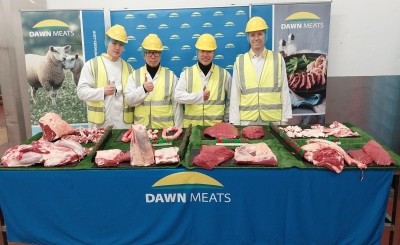News
Inadequate border testing facilities create food waste and delays

In a letter to secretary of state Steve Reed, the SPS Certification Working Group highlighted the outstanding Border Target Operating Model (BTOM) issues that have impacted GB food and biosecurity.
Not only do UK businesses need to contend with goods being rendered unusable from a food safety perspective due to the method of sampling of bulk materials, but additional costs are also incurred when Border Control Posts (BCPs) fail to meet demand.
“Industry has been advised that samples sent for analysis may need to be sent to the EU (usually Germany) as there is insufficient UK laboratory capacity,” the letter explained.
“This requires raising an EHC to export the sample to the EU laboratory, representing additional cost, delay, loss of shelf life, and viability of the use of the foodstuff – as particularly if short shelf life, results can also be too late to be of any practical value.”
Waste and costs
Checks of this nature not only create waste, but also add costs to products that will make it unfeasible for current supply chains to continue to operate without raising the prices on raw materials and ultimately the final products.
This in turn would be passed on to the final consumer, as the magnitude will be too great to be absorbed by the business.
“UK lab capacity must be adequate to meet the new sampling demands,” the Working Group concluded. “Recognition is needed of producer hygiene standards and controls, sampling frequencies must be appropriate and risk-based, with sampling approaches being designed to not create unnecessary food waste.”
Other issues brought up in the SCP letter included the inadequacy of the Trade Tariff Look-Up Tool in assisting businesses with trade, a lack of transparency on food product risk categorisation methodology and the one-day prenotification requirement’s impact on GB’s just-in-time supply chain.
Threats to food security
“We are deeply concerned by threats to GB food security, biosecurity and food safety that reflect many of the issues our member organisations have raised with Defra, including senior managers, over the gestation period of the BTOM,” wrote Karin Goodburn, chair of the SPS Certification Working Group.
“It is worth noting that the EU is the major supplier of many of the UK’s food and ingredients, and that much EU-GB trade operates on a ‘just-in-time’ basis, often involving product with significantly shorter shelf-life than that arriving from other origins.
“Any disruptions to this EU-GB supply chain therefore pose significant risks to UK food security and need to be carefully managed, planned for and mitigated where possible.”
Meanwhile, industry analysis of 2024’s first quarter has revealed disappointing news for UK trade and manufacturing revenues, with numbers taking a big hit – but new opportunities to enhance existing trade deals may offer light at end of the tunnel.















